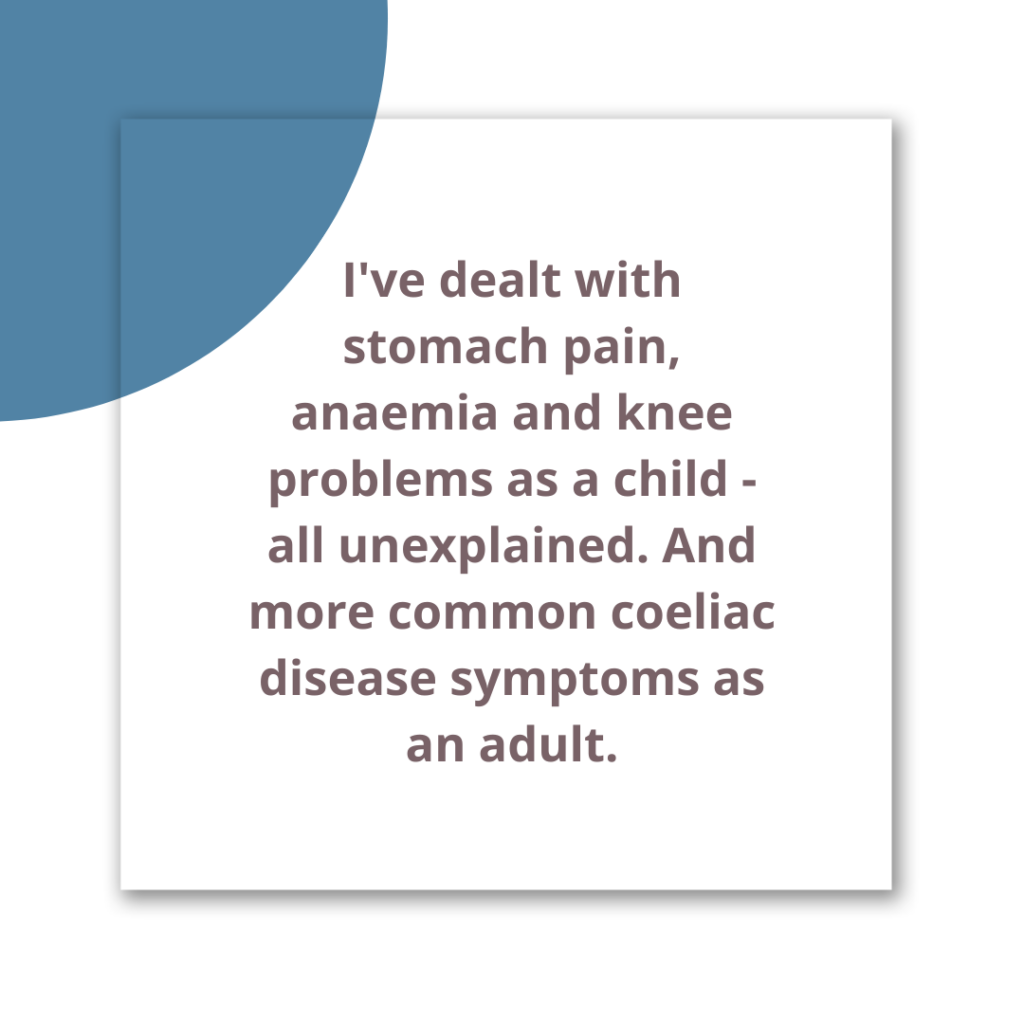Could it be Coeliac Disease?
It is Coeliac Awareness Week 2023 in the UK and Coeliac Awareness Month 2023 in some other European countries. Coeliac UK has raised the question: “Could it be Coeliac Disease”, so I am happily doing my part in sharing awareness. I am doing this by talking about some of my major symptoms before the diagnosis. All in the hopes of offering a solution to people who may be going through something similar.
What is Coeliac Disease
Coeliac disease is a relatively common immune disorder (not an allergy) causing extreme sensitivity to gluten – a protein found in wheat, rye, and barley. It affects a significant number of people worldwide. According to estimates from the World Gastroenterology Organisation, approximately 1% of the global population may have coeliac disease, although often undiagnosed.
The prevalence of coeliac disease varies among different populations, with some groups being more affected than others. For example, coeliac disease is more common in people of European descent than in other ethnic groups. In some European countries, the prevalence of coeliac disease may be as high as 1 in 100 people.
What are the symptoms
Symptoms can vary from person to person, and don not just involve the gut. Some of the most common ones include digestive issues (bloating, abdominal pain, diarrhoea, constipation, nausea), fatigue, weakness, weight loss, anaemia, skin rash, joint pain, headache, infertility or recurrent miscarriage.

As a child, I visited our family doctor with my unexplained stomach pain so often that she once said to my mum that I am faking it so I can skip school. A bit older, I had knee problems and anaemia. They were all written off as growing difficulties.
As an adult, I experienced diarrhoea, constipation, itchy rash on my elbows and knees and breathlessness walking up the smallest of hills. All of the symptoms have eased after starting a gluten-free diet which is currently the only effective treatment for coeliac disease.
I also want to add here that many people have said to me that they think they have it too, but never go for a check-up. It honestly never crossed my own mind that I could have coeliac disease until the GP sent me for the confirming endoscopy.
What can be done
Although coeliac disease has some symptoms in common with gluten sensitivity and wheat allergies, only coeliac disease damages the gastrointestinal (GI) tract. Therefore, it is very important to get tested and/or diagnosed, ultimately helping to raise more awareness and hopefully find a cure for this dreadful disease.
If coeliac disease runs in your family or you suspect that you may have it, it is important to talk to your doctor or a gastroenterologist for diagnosis. Early diagnosis can help manage symptoms and prevent long-term complications associated with the disease.
But before you do that, you can take Coeliac UK’s online self-assessment which will confirm if you should speak to your healthcare professional about being tested.
You can read more about my personal story here.





